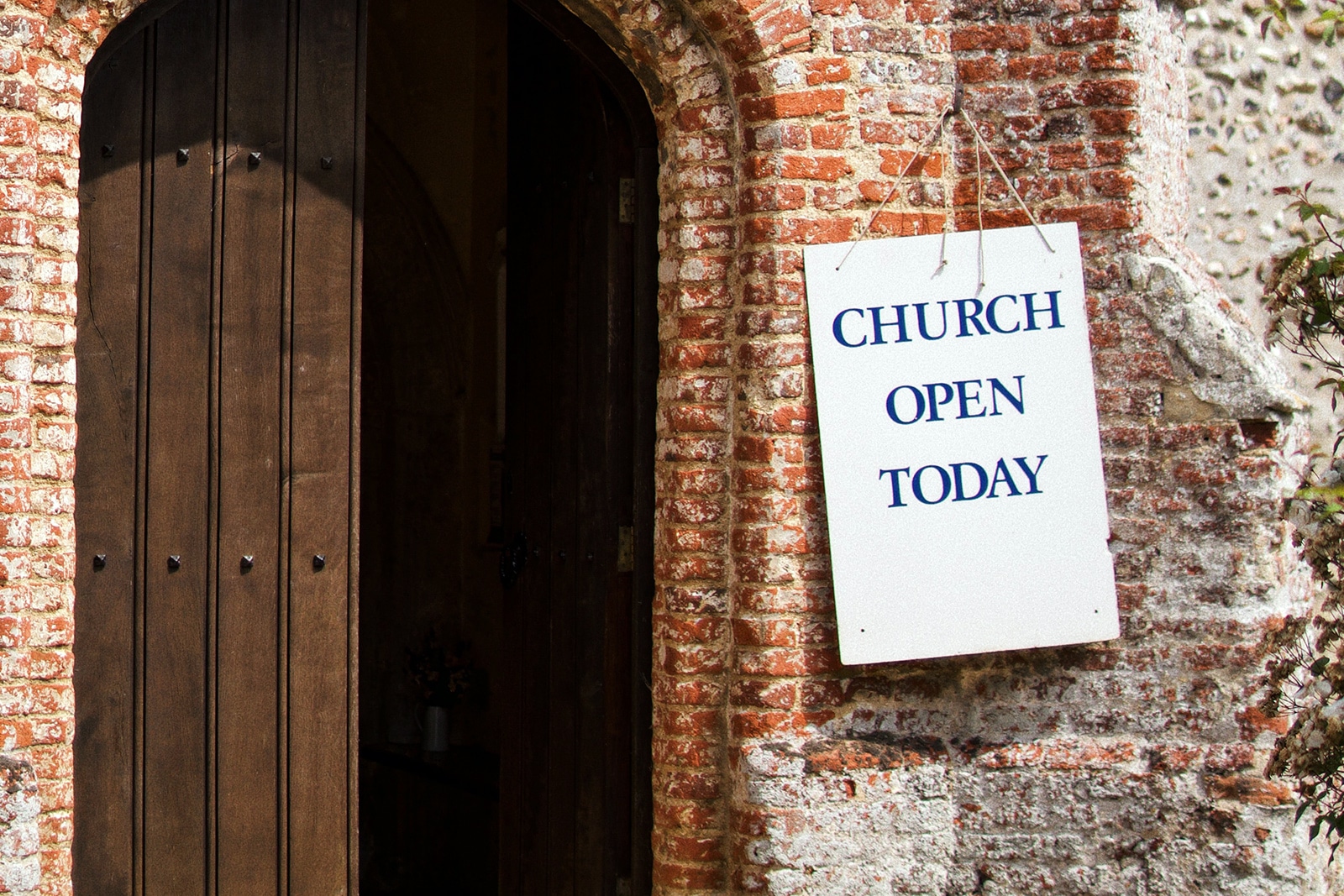Onsite Sunday School can resume, if teachers take weekly supervised swab test: MCCY
Salt&Light // October 18, 2021, 10:14 pm
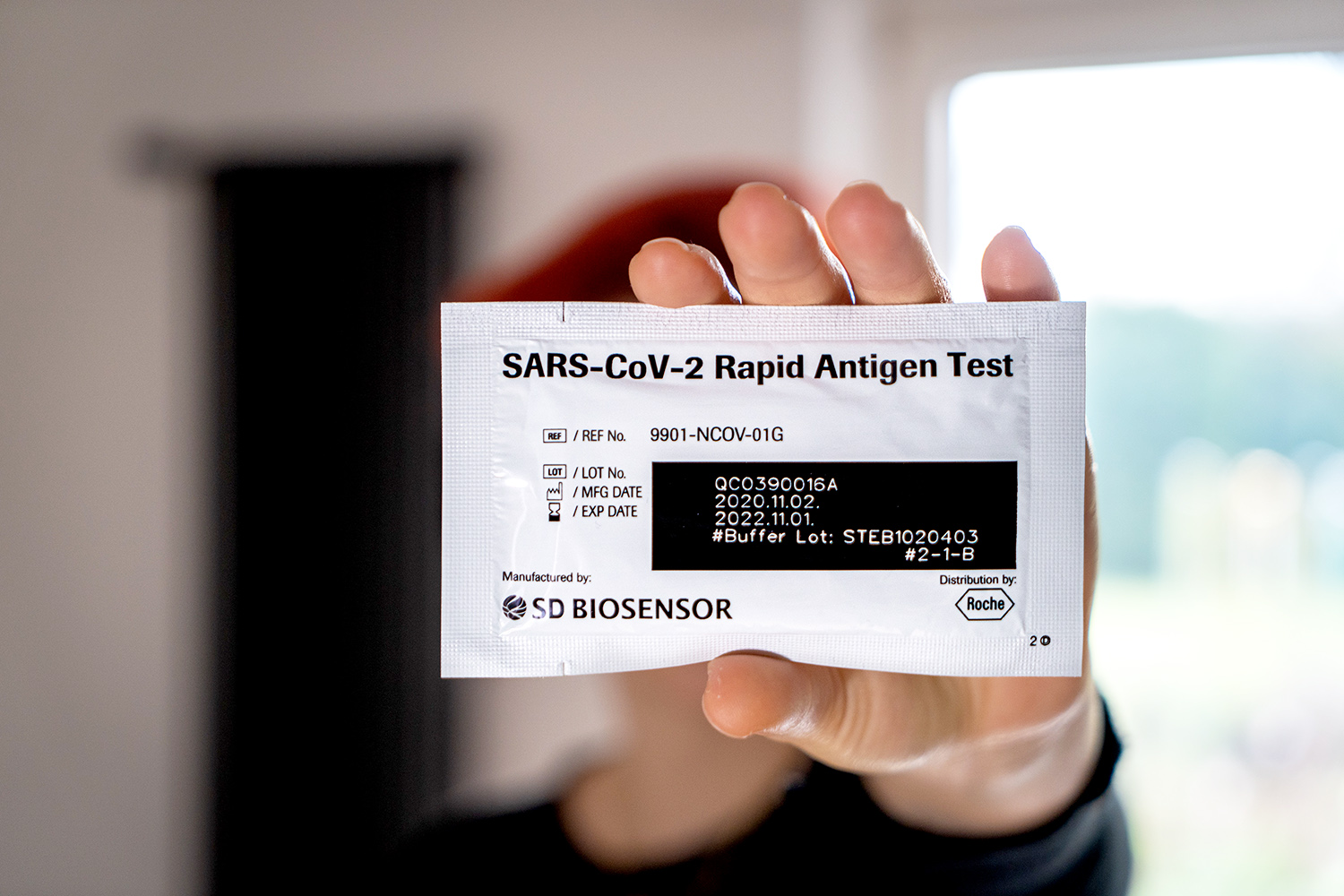
Photo: Mika Baumeister/Unsplash.com
In-person religious classes of up to 50 people may resume, with those conducting classes for children required to undergo mandatory Fast and Easy Testing (FET), Singapore’s Ministry of Culture, Community and Youth (MCCY) said in an advisory issued on Monday, October 18.
This applies for all in-person religious rites and other religious activities – such as religious classes, Sunday School for children, and pastoral services – for everyone including children aged 12 and below, said the MCCY.
Each religious class must not exceed 50 persons, including staff, teachers and supporting workers, broken up into groups comprising no more than 2 persons. “As a best practice, we encourage a greater separation of 2 metres between groups of students attending religious classes,” said the MCCY.
It added that churches and other religious organisations are encouraged to continue to conduct religious classes online.
From October 11, staff and volunteers conducting in-person religious classes for children aged 12 and below will be required to undergo FET. This mandatory FET will be conducted once a week, regardless of vaccination status, while all unvaccinated staff will have to be tested twice a week, under the more stringent Vaccinate or Regular Testing (VoRT) Regime, implemented in Singapore on October 1.
Before conducting the religious class, churches must notify MCCY of the names of those conducting the classes, as well as appoint and train supervisors to oversee the FET. More information on the FET guidelines are available on the Crisis Preparedness for Religious Organisations (CPRO) website at www.cpro.gov.sg.
Under the FET protocol, churches must conduct Employer-Supervised Self-Swab (“ESSS”) for their staff. The costs for the Antigen Rapid Test kits that will be used for ESSS and the training required for supervisors will be borne by the Government until the end of 2021.
ESSS involves staff using an ART kit and performing a swab on themselves under the supervision of a trained supervisor . The swabbing and supervision can be done either at the workplace or virtually, such as via video conferencing.
Churches must nominate at least two staff to undergo training to be a ESSS Supervisor. They must attend a 4-hour virtual Supervisory Training in ART Self-Swab, conducted by the Ministry of Health’s appointed training provider, HMI Institute of Health Sciences.
More details on the FET process are available at the CPRO website.
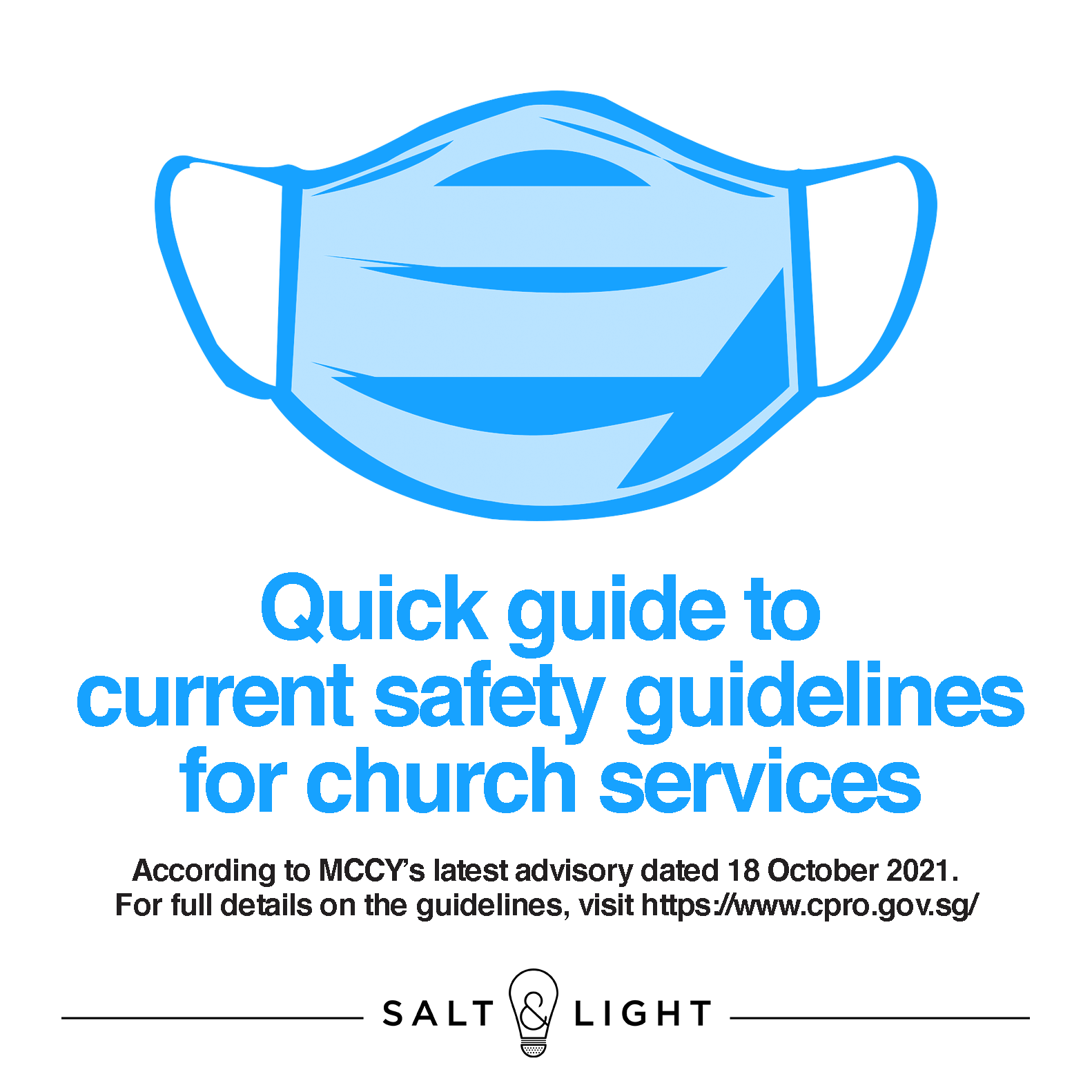
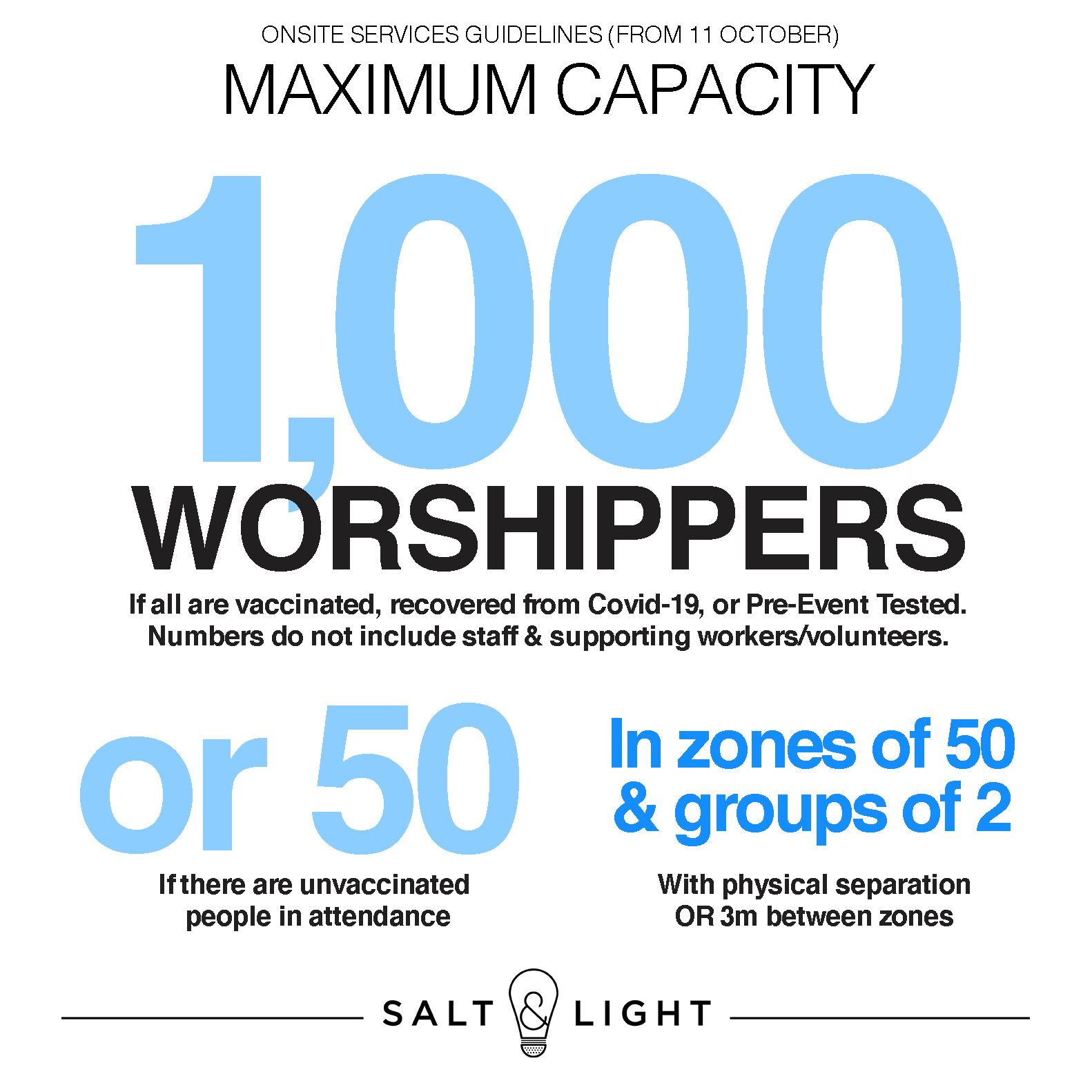
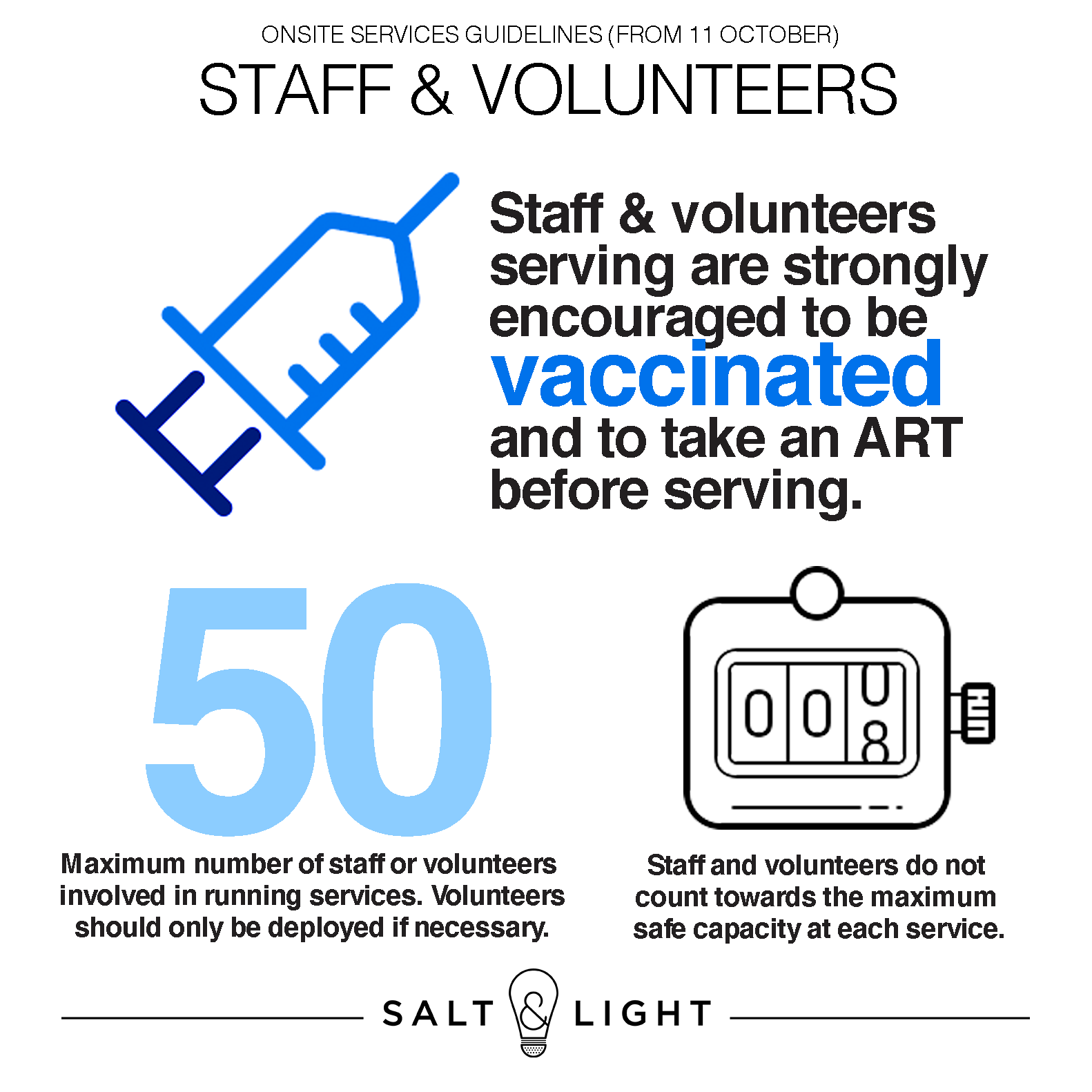
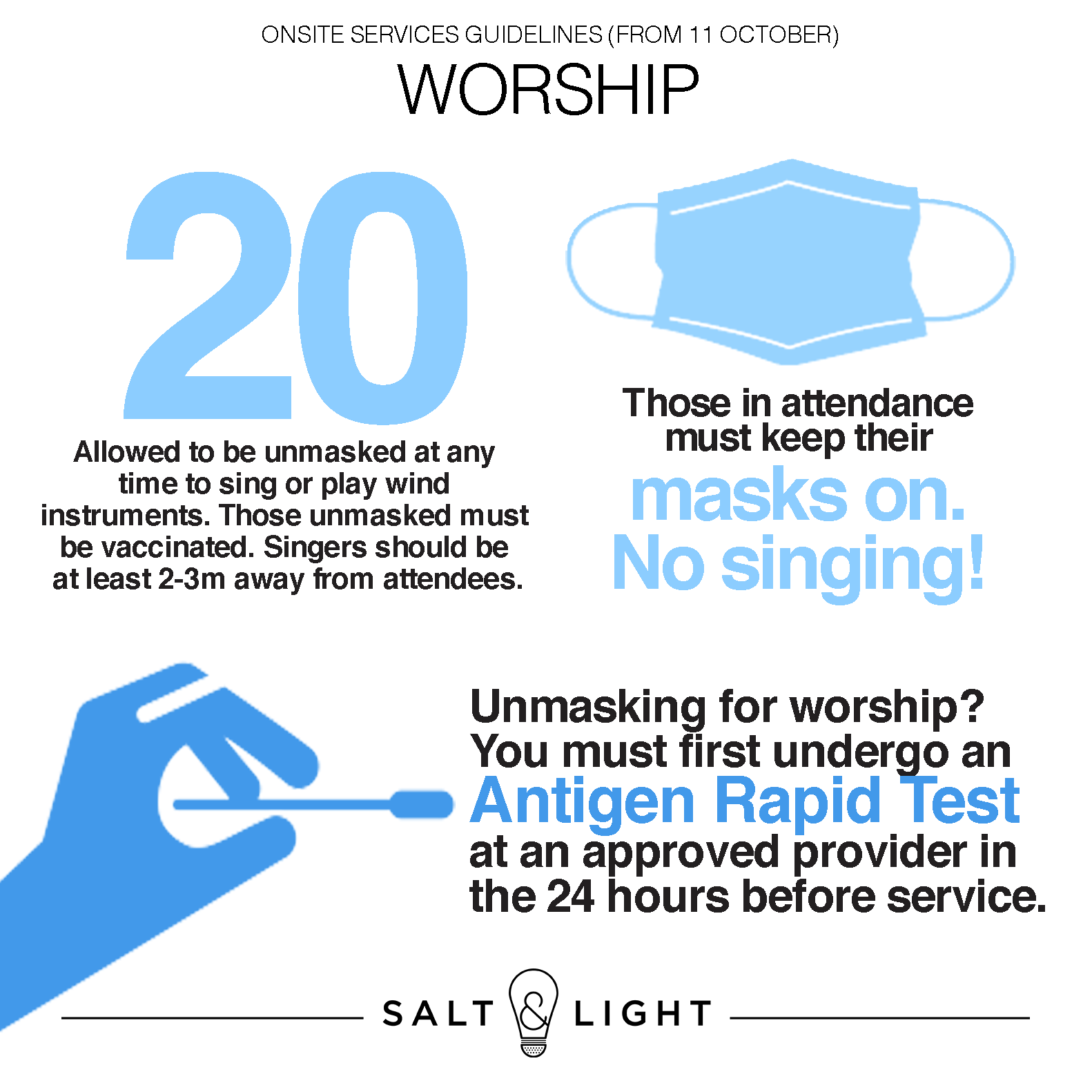
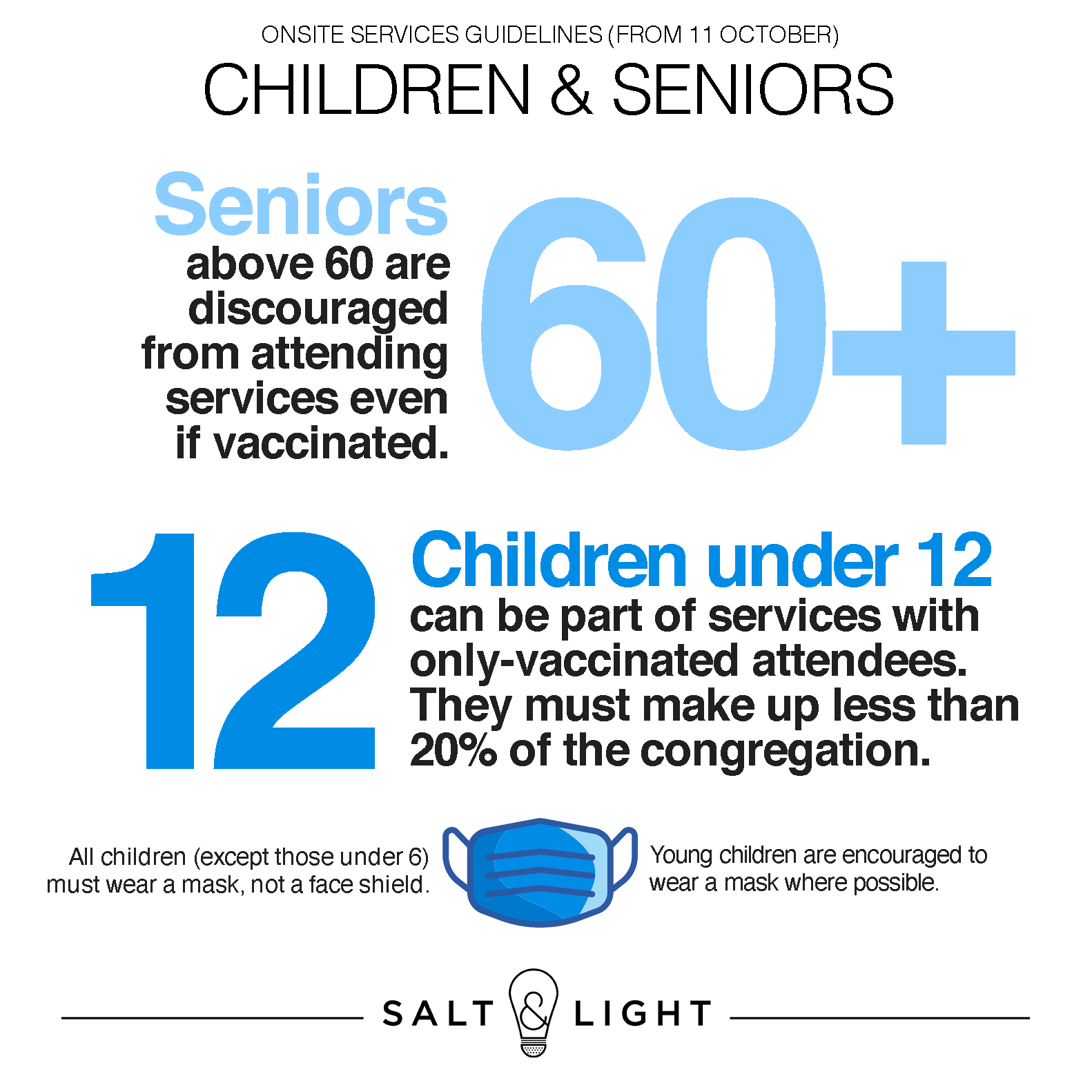
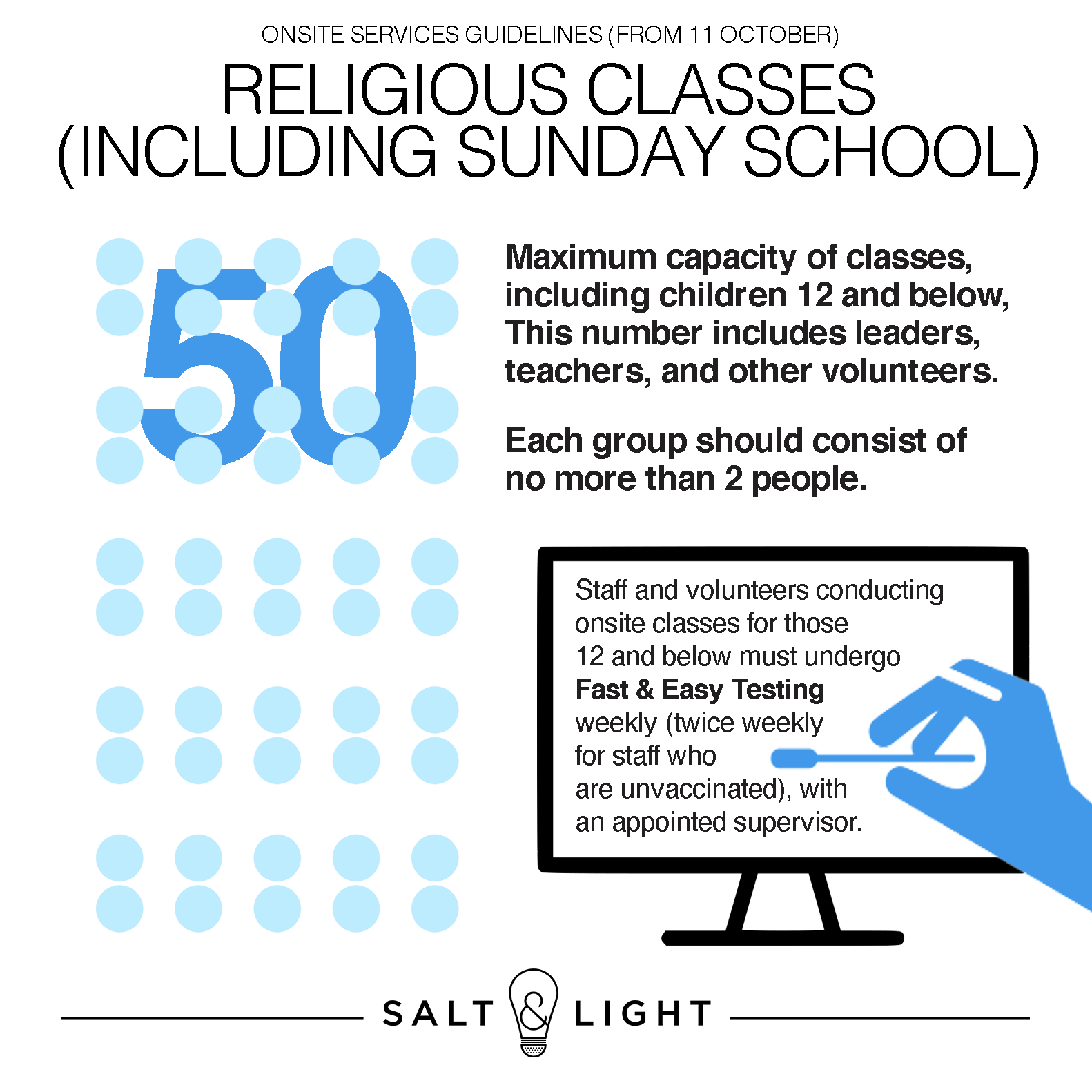
We are an independent, non-profit organisation that relies on the generosity of our readers, such as yourself, to continue serving the kingdom. Every dollar donated goes directly back into our editorial coverage.
Would you consider partnering with us in our kingdom work by supporting us financially, either as a one-off donation, or a recurring pledge?
Support Salt&Light

